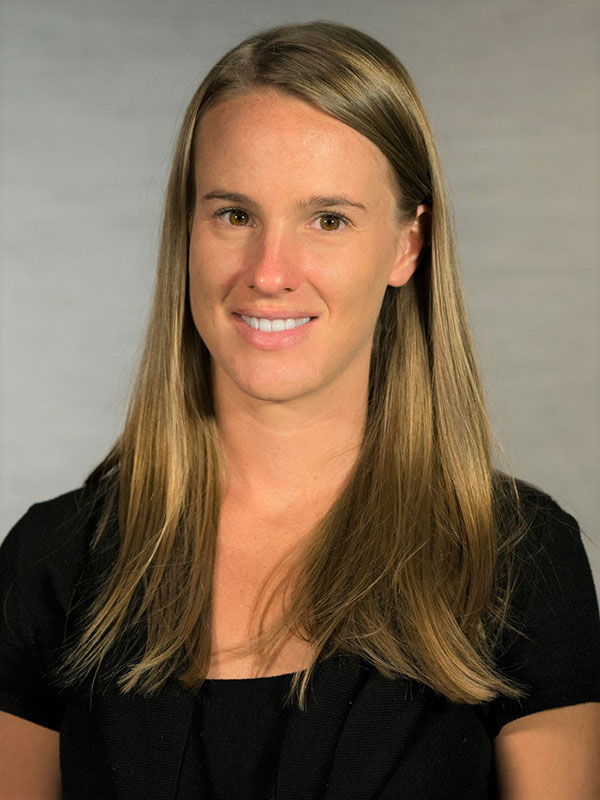Dr. Christine Wittich joined the Department of Civil and Environmental Engineering at the University of Nebraska-Lincoln in January 2017 and established her lab focused on structural engineering for natural hazards and extreme events. She teaches courses in structural engineering, structural dynamics, steel design, and infrastructure assessment techniques.
Wittich’s research incorporates full-scale testing, numerical simulations, and remote sensing of structural systems to enhance the resilience of civil infrastructure systems to natural hazards. Recent projects have focused on the dynamics of rocking systems, earthquake mitigation for historic structures, seismic hazard estimation based on fragile geologic structures, remote sensing in post-disaster reconnaissance, and rural community resilience.
A recent publication, “Driving Factors of Rural Social Vulnerability for Communities at High Risk of Riverine Flooding in the United States”, co-authored by PhD students Yasaman Ahmadi and Gabriela Yáñez González, and advisors Drs. Jennifer Lather and Christine Wittich, was recently awarded the Best Paper award at the ASCE Infrastructure Innovation & Adaptation for a Sustainable & Resilient World (INSPIRE) Conference, held November 16-18 in Arlington, Virginia. It examined the differences in factors of social vulnerability and flooding risk between overall riverine flood risk, social vulnerability, and community resilience. They found rural counties with a high risk of riverine flooding have higher percentages of vulnerable populations, such as those living in poverty, without a high school diploma, over 65 years old, with disabilities, and living in mobile homes, compared to their urban counterparts.
The conference also accepted Wittich and González’s “Barriers to social media use for disasters within transportation”, which covered the use of social media in communicating and gathering information during emergencies. The primary objective was to identify the most significant barriers to social media use before, during, and after emergencies within transportation agencies. The same team also published an NCHRP Synthesis Report titled “Leveraging Social Media Data for Emergency Preparedness and Response”.
She is currently a co-PI on a new project “Serving At-Risk Communities in Disasters: Studying Planning and Response Measures under the Lens of Equity” for the UNL Grand Challenges Planning Grant. Response and recovery efforts following disasters have long been identified as not serving at-risk populations equitably, and when done, have historically misrepresented or misinterpreted the problems and solutions that would best serve those communities. This planning grant aims to develop the necessary team and stakeholders to tackle the problem of integrating equity into disaster preparedness, response, and recovery methodologies.
Dr. Wittich is also working with a team from Texas A&M and the University of Florida on a National Science Foundation (NSF) Research Grant with the project, “Collaborative Research: Examining the Vulnerability and Recovery of Small Farms to Natural Hazards and the Impact to Community Resilience”. This project aims to be a first step towards enhancing rural resilience, in which the interdisciplinary project team will carefully track resilience from hazards to structures to farms to communities. One of the project goals is to understand the vulnerability and recovery of farms following windstorms through longitudinal reconnaissance of impacted agricultural communities, surveys of impacted farmers, correlation of hazard intensity with infrastructure response, and the examination of the linkages between recovery of individual infrastructure with farm-level recovery.
As a professor at UNL, Dr. Wittich is committed to providing academic support and research opportunities. She works to support students in the Society of Women Engineers using funding from the NASA Nebraska Space Grant to help them attend and participate in conferences and is also the lead on an NSF-Research Experiences for Undergraduates (REU) Site with Dr. Shannon Bartelt-Hunt in which they bring in 10 undergrads from around the country to UNL for the summer to work on sustainability and resilience-focused research across the civil disciplines, including structural, transportation, and environmental.
She hosted students in her lab during the MATC Sovereign Native Youth Leadership Academy and several other programs in which students in primary and secondary institutions participate in hazards engineering activities such as using the shake table to simulate the effects of earthquake and design resilient structures.
Looking forward, her work “Driving factors of community resilience for rural and urban communities at high risk of riverine flooding in the United States” will be published in 2024 for the ASCE Construction Institute and Construction Research Joint Conference, hosted in Des Moines, Iowa.
